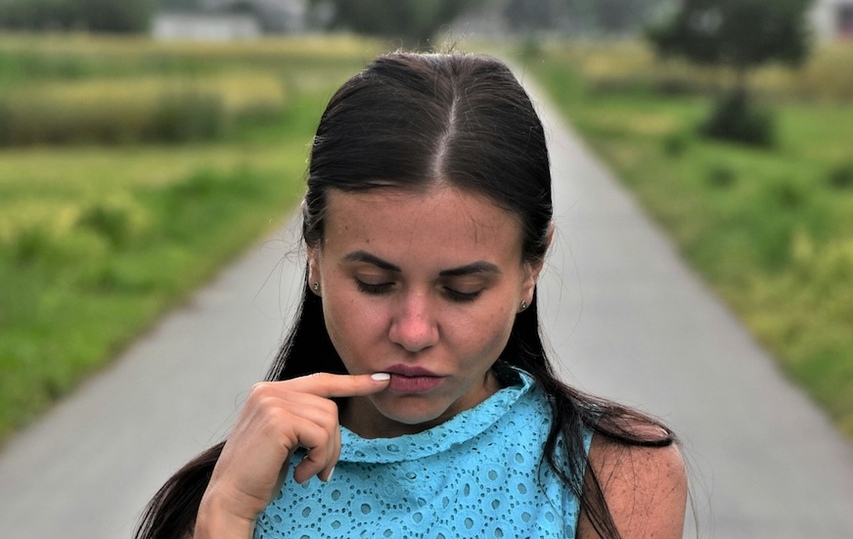Most Common Dermatologist Hair Loss Questions

If you've noticed more hair in your brush than usual or find that your ponytail isn't as full as it used to be, you're not alone. It's estimated that more than 50% of women will experience considerable hair loss in their lifetime.
Losing hair can be a very emotional and stressful experience, and there are several reasons behind what could be causing it. For women, the most common cause of hair thinning and hair loss is female pattern hair loss, which affects approximately 30 million women in the United States alone. But other factors like age, nutrition, styling habits, and even your geographical location can play a massive part in your falling strands. Unfortunately, considering how common hair loss is, there are a lot of misconceptions about the subject. These are the most common hair care questions that are referred to by dermatologists.
Is hair thinning related to age?
Most women over 40 experience hair thinning at a higher rate, but factors like bad styling habits and stress are the leading cause of hair loss in women in their 20s and 30s. Female pattern baldness can begin at any point during the reproductive years; some severe cases have even been noted during early puberty. If you're genetically predisposed to hair fall, it can begin as early as your teens.
Is all hair loss permanent?
While female pattern baldness is an irreversible genetic condition, not all hair loss is caused by this ailment. If hair loss is caused by external factors like stress, diet, or over-styling, lifestyle changes can often rectify it unless the follicles have been severely damaged. Telogen effluvium, a common cause of hair loss in women, is the excessive shedding of hairs in the telogen phase (resting phase) after trauma, shock, or extreme stress to the system. This type of hair loss is temporary. With proper hair care and hair products, strands will often grow back within a few months. The available methods to help promote hair growth include:
- Topical minoxidil treatments
- Plant-based scalp treatment serums
- Hair loss treatment shampoos
- Hair regrowth supplements for women
Do frequent trims make your hair grow thicker and faster?
Haircuts do not affect how thick or fast your hair grows. Hair strands grow from the follicles in the scalp; the rest of the strand is composed of dead skin cells. Whether you chop your hair short or let it grow out, the rate at which the cells renew themselves has nothing to do with your hairstyle.
By getting a trim every six to eight weeks, you proactively prevent split ends from splitting the strand further up the shaft. It'll keep the hair from looking stringy and make the appearance look more full and healthy.
Does washing your hair daily cause it to fall out?
How often you shampoo your hair does not affect your hair strands' overall growth or loss. So, while you may notice the hair is falling out more acutely while you're washing it, it's hair that would have fallen out of the scalp anyway. If your hair is excessively greasy, it's best to clean it regularly to stop excess sebum (oil) from blocking up the follicles.
While your showering habits won't necessarily cause hair loss, using gentle products and washing techniques on the scalp and hair is essential to prevent damage and irritation.
Does plucking gray hair stimulate new hair growth?
Pulling out gray hair will only cause new gray hair to grow in its place. Only one hair can grow per follicle; the surrounding hairs will not turn gray until their follicles' pigment cells die. Therefore, what you do to one strand or follicle will not affect the surrounding ones. Plucking hairs can traumatize the follicle and, if done repeatedly, can lead to infection, scar formation, and even permanent damage that can lead to bald patches of hair.
Is hair loss determined only by your mother's side?
It was believed for decades that genetic hair thinning came from the maternal side of the family. However, over 200 genes contribute to the regulation of hair loss. So, it's not just mom's side causing the condition. If you suspect your hair loss is genetic, look at the family tree from both your mother's and father's sides and evaluate their hair history.
Can taking specific vitamins will stop hair loss altogether?
Suppose your hair loss results from certain vitamin deficiencies (often B vitamins like folate, biotin, riboflavin, and vitamin B12) and minerals, including iron, zinc, or selenium. In that case, you should take oral supplements to replenish the essential vitamins and minerals. Interestingly, some studies show that oral supplements can help improve natural hair regrowth in people with specific vitamins or mineral deficiencies. Check this link for more info.
Do all hair types need moisture?
Yes, every hair type needs moisture, but not all in the same way. Keeping your hair moisturized helps it stay stretchy and soft, reducing the chance of breakage or split ends. If conditioning leaves your hair feeling heavy, you might not be using the right products. Our line helps make your hair manageable and smooth without heavy ingredients.
Can hair get used to the same products?
There's no objective evidence that your hair can build a tolerance to certain products. However, if your hair care isn't giving you the desired results, it might seem like it's stopped working. Our experience shows that sticking with our natural formulas can make your hair and scalp healthier. Sometimes, a slight change in products, especially with the seasons, can make a big difference.
Does rinsing with cold water make your hair shinier?
Cooling down your rinse water can help smooth your hair cuticle, potentially making it look shinier. But really, clean and well-moisturized hair is the secret to shine. Cold water can soothe an upset scalp, but beware if you have certain scalp conditions — hot water could be a problem, making things drier.
Is air drying the best way to dry your hair?
Air-drying works well sometimes, but it's not always the best choice. Your hair is very delicate, and staying moist for too long can lead to scalp issues. Towel-drying gently and using a blow-dryer on low heat can help avoid problems. Just make sure your hair isn't soaking wet for too long.
Shop:
MDhair Regrowth Hair Supplements
MDhair Regrowth Serum
MDhair Marine Collagen peptides
MDhair Peptide Bond Repair Oil
MDhair Conditioner
Minoxidil 2%
More info:
- Hair Loss in Women: Causes, Treatment & Prevention
- Best over-the-counter hair Loss Treatments for Men
- How To Improve Scalp Health?
- Reversing Hair Loss in Menopause
Find the most effective hair growth products for you by taking the free hair assessment.




